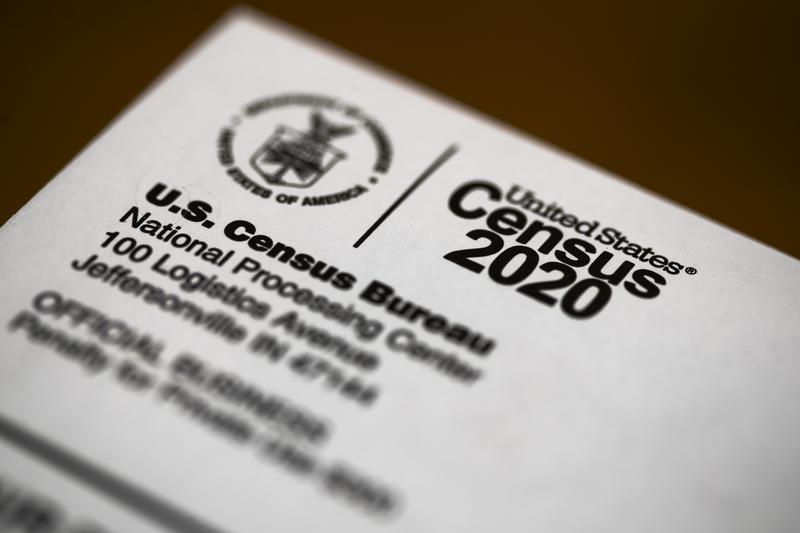[music]
Brian Lehrer: Brian Lehrer on WNYC. Now to your stories of why you checked the box more than one race on the 2020 census, especially if you didn't check it in 2010. Delores in Bradley Beach, you're on WNYC. Hi, Delores. Thanks so much for calling in.
Delores: Hi. This census I checked Hispanic and white. My family, the border crossed us, we didn't cross the border. My mother's side came over in 1592 in New Mexico and my father came over in the '20s from Cuba. I loved the opportunity that I was able to present differently. With my kids, people always kid around. We call them whatsit because people don't know what race they are. People come up to me and say, "Did you marry a Korean? Did you this?" We have a different look but we're very fair. It was great to have the opportunity to express who I am.
Brian Lehrer: There are apparently a lot of people, at least somewhat like you, according to the census, because the numbers that I've seen are, the number of Hispanic-Americans who identified as multi-racial on this census grew to 20 million people from only 3 million people in 2010, I guess, because the wording changed and it gave you and many others that opportunity.
Delores: Yes. I also took the 23andMe test and discovered that I have, although they weren't able to tell me what part of the South American Indian is in us, which is probably why we're getting white people say whatsit. It's interesting because that 23andMe, I think it opens a lot of people's eyes as to how everybody is really a lot more than they think they are, I think, in this country.
Brian Lehrer: Delores. Thank you very much. Please call us again. Michelle In Harlem, you're on WNYC. Hi, Michelle.
Michelle: Hey, Brian. I'm over 50. I'm a native New Yorker. Grew up in East Harlem in Harlem. I'm half Chinese. Father jumped ship in the 50s. Mother is Black, Caribbean ancestry. I have the long view. When I was a kid, young adult, high school, it was always one or the other both in records, employment.
Brian Lehrer: Stop there. Everybody who's called in on this segment has talked about being asked, "What are you," because people couldn't easily put them in a box visually. What is that experience like?
Jenny: Well, for my mom who got that a lot, it made her really mad and uncomfortable. She would say back like, "What are you?" A lot of people that easily fit into a norm, whatever it's called, typical race or whatever, don't get that question and especially for Asian immigrants. [unintelligible 00:03:30] You're speaking to someone who was actually born here. I think in one way it's an opportunity to actually celebrate your identity and say, "Well, I'm this and this." I tend to take it as that and see it as a way to be excited about my heritage, but for her-
Brian Lehrer: Yes, puts people in an uncomfortable position too. Jenny, I'm going to leave it there and sneak in one more caller. Camille in Manhattan. Hi, there. We have 30 seconds for you.
Camille: Hi. Well, I was just explaining before that when I was 16, I got to go to England and I was going to apply for my very first passport. My parents took me down to the office and they presented my birth certificate and to their shock and mine, although I didn't gather how impactful this was, I was listed as white as were both of my parents. They were like, "Well, let's just get your passport and we'll be able to change this at another time." I'm also in the other category where I would prefer people ask me. I am not upset. I don't feel like I'm putting--
Brian Lehrer: You'd like to explain the complexity of your background. That has to be the last word. I apologize, Camille, but we are flat out of time. Brian Lehrer on WNYC. Thanks for your call.
Copyright © 2021 New York Public Radio. All rights reserved. Visit our website terms of use at www.wnyc.org for further information.
New York Public Radio transcripts are created on a rush deadline, often by contractors. This text may not be in its final form and may be updated or revised in the future. Accuracy and availability may vary. The authoritative record of New York Public Radio’s programming is the audio record.


